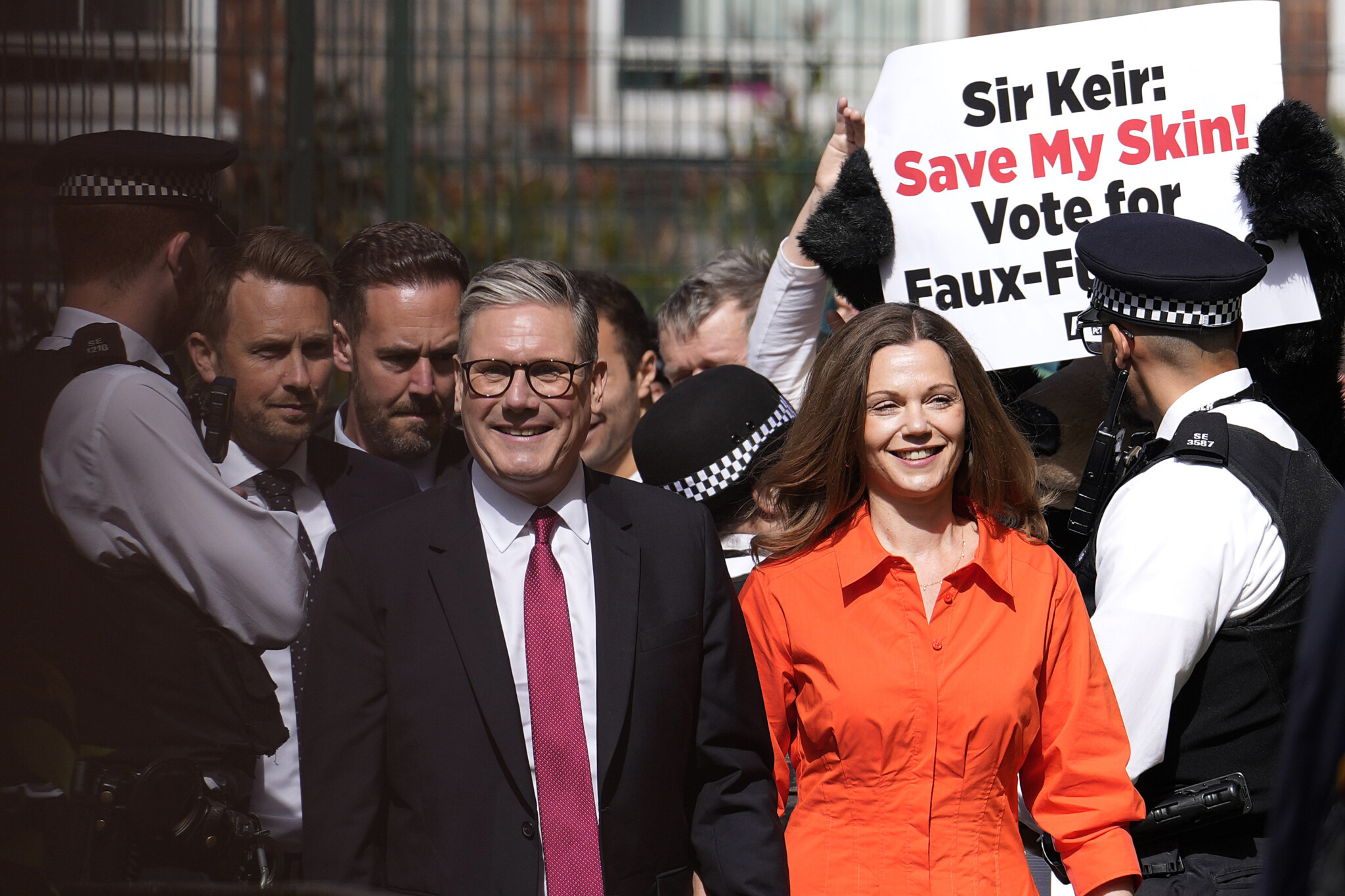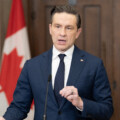For the first time in 14 years, the United Kingdom will have a Labour government, after a monumental general election win.
In his maiden speech in front of 10 Downing Street, Labour leader and now Prime Minister Keir Starmer said his government would “rebuild Britain with wealth created in every community.” “I invite you all to join this government of service in the mission of national renewal. Our work is urgent, and we begin it today,” he concluded.
As expected, Conservative leader Rishi Sunak resigned as prime minister after exit polls showed his party trailing far behind the Labour Party’s seat count. In his final remarks, Sunak accepted blame for the historic defeat.
“I would like to say, first and foremost, I am sorry,” he said. “I have heard your anger, your disappointment, and I take responsibility for this loss. To all the Conservative candidates and campaigners who work tirelessly but without success, I’m sorry that we could not deliver what your efforts deserved.”
Here are five Tweets on what was a historic British election.
Starmer and the Labour Party won 412 seats, well surpassing the 326 seat majority marker. The party more than doubled their previous seat count and more than tripled the Conservatives’ seat count.
Labour Party officially wins 2024 UK general election after reaching the required 326 seats#BBCElection live ⬇️
— BBC Breaking News (@BBCBreaking) July 5, 2024
But despite its immense share of seats and overwhelming representation compared to the Conservatives, the Labour Party only secured 33.8 percent of the popular vote.
Their share is not much higher than the Conservatives’ 23.7 percent. Nigel Farage’s Reform UK Party won four seats, though their popular vote share was an impressive 14.3 percent. If the Conservatives and Reform united, they would have bested the Labour Party in the popular vote by more than 4 percent.
The Labour Party’s lack of popularity has sparked a conversation about whether Britons voted for the Labour on merit or to get the Conservatives out of government. Before the election, nearly half of potential Labour voters indicated that they were voting strategically against the Tories, to, as they say in jolly old England, “throw the bums out.”
One of the most significant indicators of the British people’s desire for change is the sheer number of Conservative seats formerly held by recent prime ministers that were flipped.
The Liberal Democrat Party won the riding of Witney, formerly held by David Cameron, with 41.2 percent of the vote, up 15.2 percentage points from 2019. They also won Maidenhead, a riding once held by Theresa May, ending a 27-year Tory rule. It was the Liberal Democrat’s best showing in an election ever.
Boris Johnson once held the Uxbridge and South Ruislip riding, which is now Labour. The same goes for Liz Truss’s former riding, Southwest Norfolk.
Though not held by a recent prime minister, the riding of Bury-St. Edmunds in Suffolk had been Conservative since 1820. For the first time in 204 years, it will have a Labour MP.
PM Cameron in Witney - no longer a Conservative seat
— Peter Frankopan (@peterfrankopan) July 5, 2024
PM May in Maidenhead - no longer a Conservative seat
PM Johnson in Uxbridge & Ruislip - no longer a Conservative seat
PM Truss in SW Norfolk - no longer a Conservative seat
Astonishing. The most telling stat of the night
After he met with King Charles III at Buckingham Palace to accept the King’s request to form a new government, Starmer headed to 10 Downing Street to give his first speech as prime minister of the U.K.
He said that the U.K. has “[V]oted decisively. For change. For national renewal. And a return of politics to public service.”
Starmer stressed the importance of “politicians, particularly those who stand for stability and moderation”. Since 2019 the U.K. has had five prime ministers in five years, with Liz Truss serving only 49 days in office.
🤝 The King received in Audience The Rt Hon Sir Keir Starmer MP today and requested him to form a new Administration.
— The Royal Family (@RoyalFamily) July 5, 2024
Sir Keir accepted His Majesty's offer and was appointed Prime Minister and First Lord of the Treasury. pic.twitter.com/g1TwdPObbD
Newly elected Brexiteer Nigel Farage ensured Britons that he would “change politics forever” after his Reform UK party won more than four million votes. After changing his mind mid-campaign and entering the electoral race, the party leader beat a Conservative to win the riding of Clacton in Essex.
Farage had attempted to become an MP seven times before this election. The eighth time was the charm. Though, Farage says he will not stop there. He sees the Reform UK’s four-seat victory as a mere stepping stone towards a much larger fundamental change in British politics. During his victory speech, the former member of European Parliament said he wanted to become a proper opponent in the next general election and fill a “gap on the centre right of British politics.”
Good morning. pic.twitter.com/oK1NAuVtGK
— Nigel Farage MP (@Nigel_Farage) July 5, 2024
Canadian Prime Minister Justin Trudeau congratulated Starmer over X.
The Liberal leader recognized what he sees as a common mission between the two leaders to “build a more progressive, fair future.”
But Trudeau’s political future is in jeopardy. After the winds of change blew down the U.K’s Conservative government, there is global pressure on sitting Western governments to win back the lost trust of their citizens. With Pierre Poilievre’s Conservatives firmly ahead of Trudeau’s Liberals, there is no doubt that pressure is building on the Canadian side of the pond.
Congratulations, @Keir_Starmer, on a historic U.K. election victory.
— Justin Trudeau (@JustinTrudeau) July 5, 2024
Lots of work ahead to build a more progressive, fair future for people on both sides of the Atlantic. Let’s get to it, my friend. pic.twitter.com/QWlNF9NYcJ








